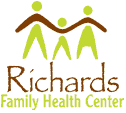Women's Health
The Truth About Estrogen
On December 20, 2000, the morning news programs were full of the "latest" health news - this time concerning estrogen and hormone replacement therapy. If you didn't hear it, the announcement was that estrogen is carcinogenic and women should rethink their use of it for prolonged periods.
For years, I've been pointing out that estrogen is a carcinogen. In fact, the "Physicians' Desk Reference" used to contain a warning that estrogen products should be used for no longer than 6 months, due to an increased risk of both uterine and breast cancer. However, about 10 or 12 years ago, the pharmaceutical industry decided to target menopausal women, as the next big potential market. I remember the concerted media campaign to make menopause a "disease," rather than a normal sequence of the life cycle. As a result, doctors were encouraged to prescribe estrogen for all menopausal women. The hook was that estrogen therapy would protect women against osteoporosis and cardiovascular disease. Expect doctors to continue prescribing and encouraging estrogen use. The current line is that "More women will die of cardiovascular disease than of cancer. So, the risk is worth it." I have to say, I don't know many women who would agree with that point of view.
In the first place, estrogen lack is not the culprit in bone loss. Bone loss begins before menopause, in the perimenopausal period. Once you stop ovulating, you lose progesterone, and progesterone is responsible for keeping your bones strong. More importantly, natural progesterone is not carcinogenic. However, most prescription products are progestins which are progesterone-like male hormones. The physiologic effects are very different.
Nor is their any evidence that lack of estrogen causes heart disease in women. The case is entirely circumstantial. We know that estrogen is protective to women of child-bearing age. However, that does not mean it is good for menopausal women. Diet and lifestyle are far more important in the development of cardiovascular disease than our hormone status. For more information on good diet and lifestyle choices, call the RFHC and order my lecture tape "Cardiovascular Disease: Is Your Diet Your Downfall?"
At the RFHC, I recommend natural, plant-based phytoestrogen (estriol, which is non-carcinogenic) for the 3 to 4 year period when hot flashes are most severe. Our product is a combination of estriol and natural progesterone. Also, I recommend support for the adrenal glands, when required, since our adrenals produce our entire supply of estrogen post-menopausally. After the hot flashes subside, I then recommend a woman shift to progesterone alone to maintain libido, well-being and bone density. In those women where vaginal dryness becomes severe (in the 6th and 7th decade of life), a small quantity of phytoestrogen can again be used to alleviate the problem. This is a far different protocol from lifelong use of prescriptions that contain estradiol (the most carcinogenic form of estrogen, except for Premarin which is the absolute worst!). For more information on the different forms of estrogen and what's best for you, you may order my lecture tape, "Hormone Replacement Therapy: Is It For Me? Do I Have a Choice?"
This is another instance where "current scientific knowledge" can lead us to a serious problem. What is a woman supposed to do who has been on estrogen replacement therapy for years? Is it enough to be told, "Oops! Sorry!"? I don't think so. My mother had that experience, and she died of breast cancer. I believe it's much better to err on the side of caution where a woman's health is concerned.
If you or someone you love is experiencing menopausal symptoms and would like a personalized program, please call us and make an appointment for a consultation.
Does this apply to you? If so, see our information on Consultations.
[TOP]
© 2011 Richards Family Health Center. This site or any part may not be reproduced without the written consent of Richards Family Health Center. N Rowan Richards, DC, DABCI, FIACA at 242 South Glendora CA 91741. 626 963 1678. email:richardsfhc@richardsfamilyhealth.com. This site is Not intended to dispense health advice or serve as a substitute for actual patient contact with a qualified healthcare provider. Our sole purpose is one of education. It is our expectation that our site can educate our visitors about the efficacy of some healthcare treatments that exist as an alternative to conventional medical wisdom.
PRIVACY POLICY: Richards Family Health Center takes your privacy very seriously. Be assured that we do not sell or rent your contact information to anyone.


